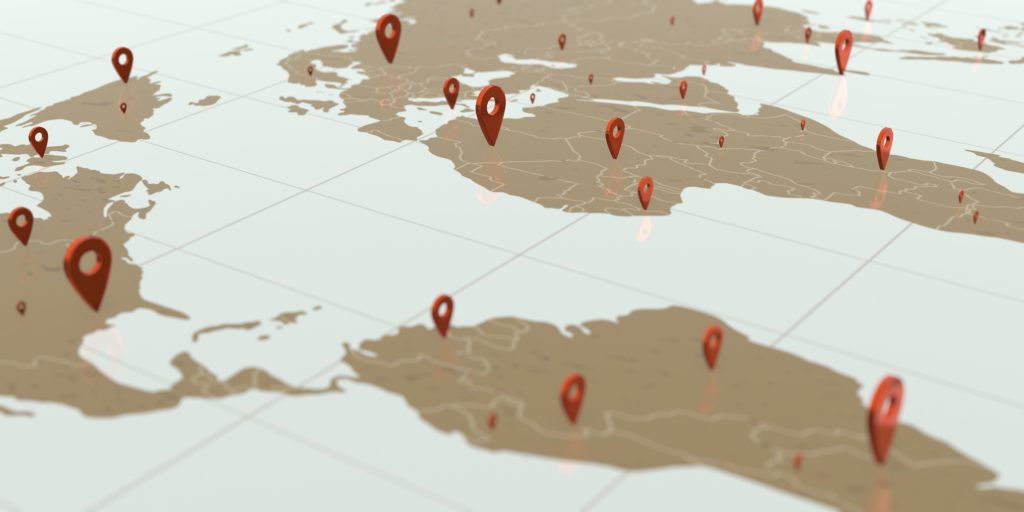
We frequently discuss global partners on our blogs and podcast, and you may be asking, why? Global partners allow us to meet clients’ international needs without employing personnel in every country.
A previous article provided guidance on what information you should provide when requesting international support. Because your request initiates and lays the foundation for the engagement, detailed and accurate information is critical.
So what happens next?
Choosing a Global Partner for Assignments
First, based on the nature of the request and location, we will review our database to identify potential partners for the engagement.
We’ll then contact these partners and provide the project scope (disclosing only what is needed) to determine if they can assist. We request estimated fees and turnaround time, typically from at least two potential partners.
Soliciting multiple responses starts our quality control process. For example, if we request an asset search and receive two completely different responses—one company offers to provide anything we need, while another reports that it would be illegal/impossible to research assets in the jurisdiction—this would be a red flag. We sort through any discrepancies before submitting a detailed plan and proposal to the client.
If the engagement is approved, we will retain the chosen partner and maintain constant communication until the end of the engagement. Throughout the process, we provide regular updates and may request additional information, if necessary. We are responsible for the final work product and ensure timely delivery.
What happens if we don’t have an established resource in the jurisdiction? Either we will identify someone or we will determine that no suitable options are available. Regardless, we share our findings so you can make an informed decision about next actions.
What We Look for in Global Partners
Our global partners are typically individuals and/or organizations that share our passion for service delivery, responsiveness and adherence to laws/regulations. They are committed to understanding the requirements of each engagement and, most importantly, to delivering world-class service. We interview and vet potential partners, and if possible, we engage them in test cases before entrusting them with a client project.
One thing that we have learned is that every location around the world, including the United States, has its own laws, customs, procedures and infrastructure. Having global partners with local contacts who understand the laws (i.e., what’s legal, what’s not), court systems, public records and local customs/culture is critical to having a successful outcome.
Theoretically, anyone can claim to have “global partners.” One key differentiator is the relationship between the parties. Developing international relationships requires an investment of time, resources and money, including regular conversation (virtual and/or in-person), quality control measures, ongoing feedback (both positive and negative), and clear communication of mutual expectations.
Bottom line: Never take things at face value. When hiring an investigative partner for international needs, don’t assume anything. After all, anyone working on your behalf is representing you and your organization. Take the time to learn how the work will be done and by whom.
If you have any questions about our global partners, or if you need assistance with an international investigation, leave a comment, or call us at 212.871.1274.












